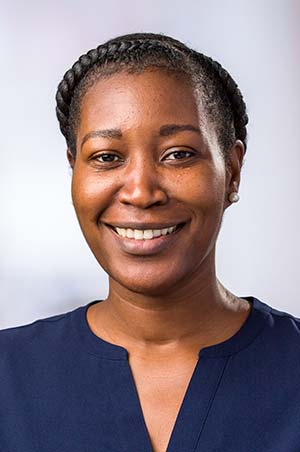Rachel Issaka, MD, MAS
Associate Professor
Public Health Sciences Division, Fred Hutch
Associate Professor, Gastroenterology and Hepatology
Clinical Research Division, Fred Hutch
Associate Professor
Hutchinson Institute for Cancer Outcomes Research (HICOR), Fred Hutch
Kathryn Surace-Smith Endowed Chair in Health Equity Research
Fred Hutch
Dr. Rachel Issaka is a gastroenterologist and clinical researcher focused on decreasing the mortality associated with colorectal cancer, with a special focus on medically underserved populations. Dr. Issaka’s research includes identifying, measuring and recommending new and improved approaches to screening and follow-up both in Seattle and across the U.S.
Other Appointments & Affiliations
Director, Population Health Colorectal Cancer Screening Program, Fred Hutch & UW MedicineDirector, Population Health Colorectal Cancer Screening Program
Fred Hutch & UW Medicine
Associate Professor, Department of Internal Medicine; Division of Gastroenterology
University of Washington School of Medicine
Education
Fellowship, Gastroentereology and Hepatology, University of California, San Francisco, 2017
MAS, Clinical Research, University of California, San Francisco, 2017
Residency, Internal Medicine, McGaw Medical Center of Northwestern University, 2013
MD, University of Michigan, 2010
BS, Biology, University of Wisconsin-Eau Claire, 2005
Research Interests
Optimizing interventions that improve colorectal cancer care outcomes
Achieving health equity in colorectal cancer care in medically underserved populations
Colorectal cancer screening as a model for precision population health
"Screening is a way to not only prevent disease but reduce racial and economic disparities. We need to close that gap so that every citizen can benefit from the advances in cancer care and prevention."
— Dr. Rachel Issaka
